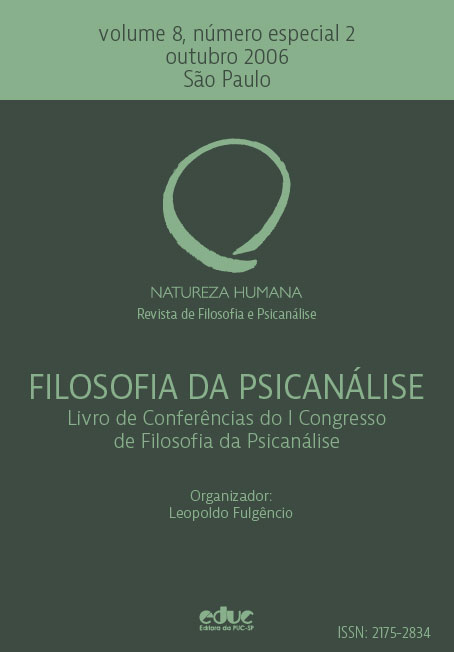Heidegger's critique of Freud: when the most original access to reality does not require representation
DOI:
https://doi.org/10.59539/2175-2834-v8nespecial2-797Keywords:
Heidegger; psychoanalysis; reality.Abstract
In his Zollikon Seminars, Heidegger points towards theneed to create a science of the psyche that conceives man - his health and his illness - without reducing him to a representing mind, to a symptom-generating machine, to an object that can be causally explained. In launching thar challenge, the Heideggerian philosophy defies he consolidated Freudian psychoanalysis denouncing ir asbeing indebted to modern meraphysics, since its conception of man as a psychic apparatus controlled by impulses establishes he representation as the only form of access to reality, reifies human life reducing it to a field of physical-mathematical powers. Hence, Heidegger defends the possibility of a "scienceofrnan" that cannot be reduced to a reifying discourse.The present communication points outthat Freudian psychoanalysis does not contemplate human existing in its non-reifying modes of dealing with reality and further shows that that possibility was found in Winnicott's theory of maturarion.Downloads
Published
2024-05-17 — Updated on 2006-05-17
How to Cite
Ribeiro, C. V. (2006). Heidegger’s critique of Freud: when the most original access to reality does not require representation. Human Nature - International Philosophy and Psychology Review, 8(especial2), 41–59. https://doi.org/10.59539/2175-2834-v8nespecial2-797
Issue
Section
Artigos








